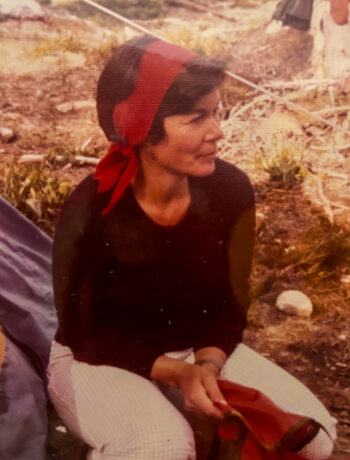Invest in yourself to stand out from the bunch
Have you ever heard about the theory of “career capital”? It’s about gaining skills, connections and credentials that put you in a better position to make a difference and stand out. Capital is something used to create wealth and career capital comes from assessing your deficiencies and embracing a plan to close the gap between where you are and where you want to be.
This theory is super fascinating and I think we can apply it to many aspects of life beyond career, including relationships and competitive sports.
Raising capital
Chasing money, chasing lovers or chasing sponsors rarely leads to success. More often than not, frustration and self-doubt set in when we inevitably don’t get it right away. Success and happiness doesn’t come from finding a job or person that corresponds with fulfilling your ideals, it comes from building your skills and focusing on where you can add value.
Many people think, “What can the world offer me?” or “What can someone offer me?”. When you focus only on what others offers you, it leads to chronic unhappiness. In relationships, many people focus on finding the right person rather than being the right person; in business, many focus on getting profits rather than adding value; in sports, many athletes focus on what the team can do for them, rather than what they can do for the team.
Career Capital
Working hard and being busy does not necessarily mean that it yields effective results. The key to building career capital is having a growth mindset and looking for projects and experiences that compel you to learn something new.
Those with a large amount of career capital are continually investing in themselves. They work on their hard skills and soft skills, seeking out opportunities for growth and making small bets to reap larger gains. A career capitalist is also willing to be embarrassed for the sake of getting feedback and making connections.
Athletic Capital
Diversification of skills is a valuable part of an athlete’s investment portfolio.
An athlete that seeks to gain capital will look at every personal connection, training session, performance or experience with a perspective that assesses their execution and evaluates their performance. These athletes ask themselves, “what has the experience taught me, how can I be better next time or what can I learn from this person”. Evaluation is done in an effort to improve skills and every participation offers the opportunity to get better at their craft.
Athlete’s who gain a substantial amount of athletic capital learn valuable transferable skills and create important connections they can deposit into their bank of experience. Eventually, you become so good they can’t ignore you.
Relationship Capital
People have an absurd belief that lovers should make them happy and complete them. The truth is, loving is a skill where the masters have carefully practiced and the novices have languished in their carelessness.
If you want to find the right person, you must be the right person. You need something of value to invest. How much relationship capital do you have? How much time have you spent working on your values, your attitude, your personality, your communication skills, your health—how much time have you spent working on yourself? If you’re not willing to invest in yourself, how can you expect anyone else to?
—
For more great reading, check out Cal Newport’s book So Good They Can’t Ignore You





No Comments